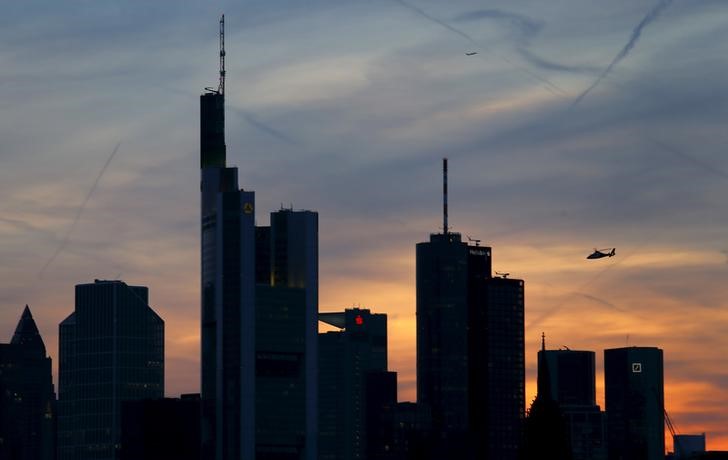By Jonathan Cable
LONDON, (Reuters) - The euro zone's economic boom paused last month as rising prices took a toll on demand, but the zone remains on course for its best growth in eight years, a survey showed on Monday.
Growth was robust and broad, with countries across the region reporting expansion, welcome news to the European Central Bank as it looks to end its ultra-easy monetary policy.
IHS Markit's Final Composite Purchasing Managers' Index, seen as a good overall indicator of growth for the euro zone, fell to 57.1 in February from January's 58.8 and down from the flash estimate of 57.5.
January's reading was a level not seen since June 2006. But the slight slip last month leaves the PMI well above the 50 mark that separates growth from contraction.
"The euro zone economy looks to have hit a speed bump in February after a stellar start to the year. It's too early to read too much into the February fall in the PMI, and some pull-back from January's high was always on the cards," said Chris Williamson, chief business economist at IHS Markit.
Williamson said the PMI was consistent with GDP rising at a buoyant rate of 0.8 to 0.9 percent, which at the upper end would be the strongest since the second quarter of 2010.
Momentum in the bloc has peaked, according to a Reuters poll last week that predicted quarterly growth of 0.6 percent and said the ECB would drop its easing bias on stimulus by or at the June meeting [ECILT/EU].
Alongside growth, inflationary pressures also eased a little last month and the output price index dipped to 54.4 from 54.8. Inflation slowed to a 14-month low in February of 1.2 percent, well below the ECB's target of close to but below 2.0 percent, official data showed last week.
New business came in at the weakest pace in six months and with prices still rising, activity in the bloc's dominant service industry took a hit. That index sank to 56.2 from 58.0, below an earlier estimate of 56.7.
But suggesting February could be a blip, companies were more optimistic about the year ahead. The business expectations index climbed to a nine-month high of 68.2 from 68.0.
